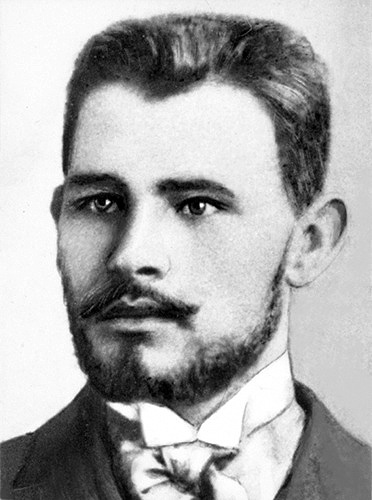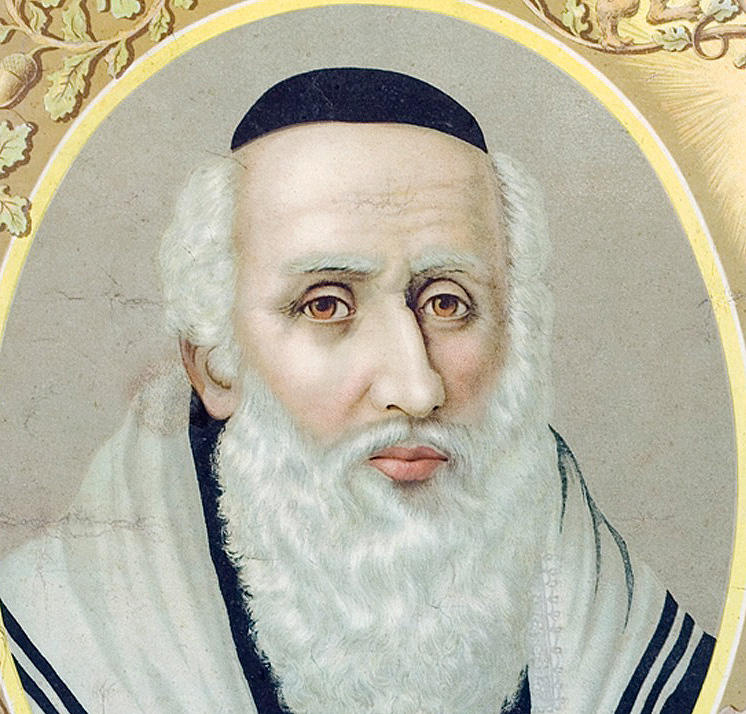Dates of birth of famous people, other important dates of Lithuania history
April
1 d. 1579 Vilnius University, the oldest and largest in Lithuania, one of the oldest European higher education institutions, was established by the efforts of the Jesuits. 1579 King Stephen Bathory issued a deed of privilege to open the Vilnius Academy, and Pope Gregory XIII issued a bull confirming the 1570 A Jesuit college established in Vilnius as a university. Initially, it housed the faculties of Theology and Philosophy.
1 d. 1936 Marcelijus Martinaitis was born. Poet, essayist, translator, playwright, one of the most important representatives of the generation of writers who changed the face of Lithuanian literature in the seventies and eighties. Laureate of the Poetry Spring (1975), Lithuanian National Prize (1998), Baltic Assembly Prize (2007).
2 d. 1889 Ignas Šeinius was born. An innovator of Lithuanian prose, a representative of Impressionism, one of the most active enthusiasts of modernist aesthetics. Wrote in Lithuanian and Swedish. He is best known as the author of the novel Kuprelis.
2 d. 1909 Stasys Vainiūnas was born. Lithuanian composer, pianist, conductor, pedagogue, choirmaster, professor.
3 d. 1897 Juozas Stanulis was born. Lithuanian theater actor, director. One of the creators of the professional Lithuanian theater.
3 d. 1954 Vidmantas Bartulis was born. Lithuanian composer. 1999-2003 - Head of Kaunas Drama Theater. Laureate of the Lithuanian National Prize (1998).
 4 d. 1557 Leonas Sapiega was born. Political figure of the Grand Duchy of Lithuania, Grand Secretary of Lithuania (1580), Chancellor of Lithuania (1589–1623), Vilnius Voivodeship (since 1623), Grand Hetman of the Grand Duchy of Lithuania (since 1625), headed by the Third Statute of Lithuania (1588 m.).
4 d. 1557 Leonas Sapiega was born. Political figure of the Grand Duchy of Lithuania, Grand Secretary of Lithuania (1580), Chancellor of Lithuania (1589–1623), Vilnius Voivodeship (since 1623), Grand Hetman of the Grand Duchy of Lithuania (since 1625), headed by the Third Statute of Lithuania (1588 m.).
4 d. 1919 The Council of State established the institution of the President of Lithuania and elected Antanas Smetonas as the first President. From September The president's place of work was the governor's palace in Kaunas. Smetona's first term as president lasted until 1920. June 19. 1920 The Provisional Constitution promulgated by the Constituent Seimas established the provision that the President shall be elected by the Seimas. Until the first sitting of the Seimas in 1922. At the end of the 19th century, Aleksandras Stulginskis, the Speaker of the Constituent Seimas, held the office of President.
7 d. 1882 Antanas Vienuolis-Žukauskas was born. Lithuanian writer prose writer, playwright, pharmacist, museologist, public figure. One of the most famous works is the short story „Paskenduolė“ ("Drowning" 1913).
8 d. 1928 Vytautas and Algimantas Nasvyčiai were born in. Architects. They designed the Seimas Palace (1981), the National Drama Theater (1981), the Neringa café (1959) and the Neringa Hotel (1960), and the Lietuva Hotel (1983) in Vilnius.
9 d. 1869 Juozas Naujalis was born. Lithuanian composer, organist, choir conductor, teacher. One of the pioneers of professional Lithuanian music.
9 d. 1921 Bronius Babkauskas was born. Actor. He has created more than 30 film roles, including the flagship films „Niekas nenorėjo mirti“ ("Nobody Wanted to Die") and „Velnio nuotaka“ ("The Devil's Bride").
9 d. 1922 Kazimieras Vasiliauskas was born. Lithuanian Catholic priest, participant in the resistance to the Soviet occupation regime, defender of believers' and civil rights. He was imprisoned in camps for almost 10 years. Monsignor (1989).
11 d. 1879 Jonas Biliūnas was born. Lithuanian writer. Author of the short stories "Kliudžiau" ("Clumsy"), "Brisiaus galas" ("The End of Brisius") (1906) and others, which have become classic works. 
12 d. 1838 Stanislovas Išora was born. Priest, 1863–1864 revolt one of the commanders. He was the first participant in the uprising in 1863. June 3 publicly shot in Vilnius, Lukiškės Square. The remains were believed to have been buried on Gediminas Hill.
12 d. 1940 Gediminas Baravykas was born. Architect. According to his projects the following were built: in Vilnius - Marriage Palace (1974, with others), former cinema "Helios" (1977), National Gallery (with architect VAVielius, 1980), Church of Blessed George Matulaitis (with others) architects, 1989, built in 1996), in Anykščiai - Marriage Palace (1981), in Varėna - church (with architect R.Bakaitis, 1995).
13 d. 1871 Jurgis Matulaitis was born. Blessed of Lithuania and Bishop of Vilnius (1918–1925), Archbishop (1925–1927), restorer and reorganizer of the Marian monastery. Through his efforts, projects of the Vatican Concordat with Lithuania and the Lithuanian Ecclesiastical Province were prepared and validated.
13 d. 1890 Danielius Dolskis was born. Lithuanian singer, pioneer of interwar Lithuanian stage (hits). Among his most popular songs are "Lietuvaitė" ("Lithuanian Girl"), „Aš myliu vasaros rugiagėlę“ ("I love summer cornflower"), "Palangos jūroj" ("At the sea of Palanga"), „Onyte, einam su manim pašokti“ ("Onyte, let's go dance with me").
14-15 d. 1920 April 14-15 elections to the Constituent Seimas took place. This was the first general, secret ballot, direct election in Lithuania. They voted 90 percent. voters. 112 representatives were elected according to the proportional system: 59 belonged to the Christian Democratic Bloc, 29 to the Lithuanian Socialist People's Democratic Party and the Lithuanian Peasants' Union, 13 to the Lithuanian Social Democratic Party, 10 seats were received by national minorities (Jews - 6, Poles - 3, Germans - 1), 1 - independent representative.
14 d. 1930 Vytautas Žalakevičius was born. Lithuanian film director, playwright. One of the most famous Lithuanian film directors. The most famous film is „Niekas nenorėjo mirti“ 〈"Nobody Wanted to Die)".
15 d. 1921 Algimantas Jonas Marcinkevičius was born. Cardiac surgeon, pioneer of cardiac surgery and organ transplantation in Lithuania. 1987 led the first heart transplant operation.
16 d. 1883 Augustinas Voldemaras was born. Lithuanian state figure, one of the founders of the Nationalists' Union. 1918 headed the first Cabinet of Ministers, was also the Minister of Foreign Affairs, and for some time the Minister of National Defense. He was a member of the government later on. Died in 1942. Vladimir prison in Russia.
17 d. 1388 Pope Urban VI officially recognized the christening of Lithuania. This meant the christening of the entire Lithuanian nation, although most of the population had not yet been baptized.
17 d. 1875 Petras Avižonis was born. Lithuanian ophthalmologist. His concern in the 1930s. The Eye Clinic was built in Kaunas and was its manager. For the founding congress of the Lithuanian Medical Association, he prepared the statutes of the association, founded the Lithuanian Ophthalmological Society, and wrote the first textbook on eye diseases in Lithuanian
17 d. 1906 Mečislovas Mackevičius was born. Lawyer and politician. 1941 was the Minister of Justice of the Lithuanian Provisional Government. 1943 strongly opposed the formation of the Lithuanian SS Legion, refused to sign the relevant decree, as a result of which he was imprisoned in the Stuthof concentration camp.
17 d. 1907 Jeronimas Kačinskas was born. Composer and conductor, pioneer of modernism in Lithuanian music, winner of the National Prize (1991).
17 d. 1910 Vladas Mikėnas was born. Chess Grandmaster, international category chess judge. Founded the Lithuanian Chess and Checkers Club. He has played five times at the World Chess Olympics.
18 d. it is believed that in 1600 Kazimieras Semenavičius was born. Military engineer and artillery. His book The Great Art of Artillery was the most important artillery work in Europe for a century and a half. In it, he first raised the idea of a multistage missile and missile artillery and provided drawings of a three-stage missile.
18 d. 1814 Eustachijus Tiškevičius was born. Historian, archaeologist and collector, pioneer of archeological science in Lithuania. On his initiative, the Vilnius Temporary Commission on Archeology and the Vilnius Museum of Antiquities were established - the first public museum in Lithuania.
18 d. 1882 Juozas Tūbelis was born. Political and public figure, head of the Government of Lithuania and the Bank of Lithuania, agricultural specialist, press officer.
19 d. 1918 The commission for the creation of the national flag formed by the Council of Lithuania (consisting of J.Basanavičius, T.Daugirdas and A.Žmuidzinavičius) announced that the national flag consists of three bands in equal proportions - red at the bottom, green in the middle and yellow at the top. The historical flag was also approved, on one side of which a white rider is depicted in a red field, on the other side - the pillars of Gediminas. Now it is the flag of the President of Lithuania
22 d. 1941 Algimantas Švėgžda was born. Lithuanian painter, pioneer of photorealistic art in Lithuania.
22 d. 1967 Loreta Asanavičiūtė was born. Defender of Lithuanian Freedom, victim of the January Thirteenth Aggression (1991).
23 d. 1720 Elijah Ben Salomon Zalman (Vilnius Gaon) was born. Jewish scholar. One of the most famous interpreters of the Talmud.
23 d. 1910 Henrikas Radauskas was born. Lithuanian poet, translator, first modernist, author of an exodus
23 d. 1918 Vytautas Kasiulis was born. Lithuanian diaspora artist. 2013 V.Kasiulis Art Museum has been opened in Vilnius.
23 d. 1922 The first official basketball match in Lithuania was played by men. It took place on 23 April 1922 when Lietuvos Fizinio Lavinimo Sąjunga (English: Lithuanian Physical Education Union) played a game against Kaunas team, winning 8–6. That day is regarded as the beginning of basketball in Lithuania.
24 d. 1806 Frydrichas Kuršaitis was born. Evangelical Lutheran priest and linguist of Lithuania Minor. The first described in detail the sounds and adverbs of the Lithuanian language, identified 4 accents of nouns. Considered one of the creators of the Lithuanian spelling
24 d. 1912 Marcė Katiliūtė was born. Graphics. Illustrations created for her I.Simonaitytė's novel "The Fate of Aukštjų Šimonių" in 1937. He won a gold medal at the World's Fair in Paris
25 d. 1913 Monika Mironaitė was born. One of the most famous Lithuanian theater actors. One of the best masters of the Lithuanian stage word.
25 d. 1921 Liudas Dambrauskas was born. Lithuanian resistance, chemist, publicist. Contributed to the establishment of the Central Committee for the Liberation of Lithuania (1943), imprisoned for more than 10 years. One of the founders (1993) and leaders of the Resistance Heritage Association Atmintis. Made 21 inventions with others.
25 d. 1944 Petras Cidzikas was born. One of the most famous figures of Lithuanian anti-Soviet resistance. On August 23, 1987, he and others held the first rally during the Soviet occupation in Vilnius, condemning the Molotov-Ribbentrop Pact.
26 d. 1906 Kazys Laucius was born. Lithuanian lawyer, photographer, publicist, scout figure. Wrote the first Lithuanian photography textbook "Everyone can take photos" (1933.
27 d. 1792 Antanas Gelgaudas was born. 1830–1831 rebel commander, Lithuanian military officer, a general of the Polish-Lithuanian Army. Originated from the nobles of the Grand Duchy of Lithuania.
28 d. 1924 Donatas Banionis was born. One of the most famous Lithuanian theater, film and television actors, director. Laureate of the National Prize. He has created more than 100 theater and more than 80 film roles.
Source of information:
Universal Lithuanian encyclopedia: https://www.vle.lt.
www.šaltiniai.info - an interactive database of Lithuanian language, literature (culture) and Lithuanian history learning sources.
Wikipedia - Internet encyclopedia.



